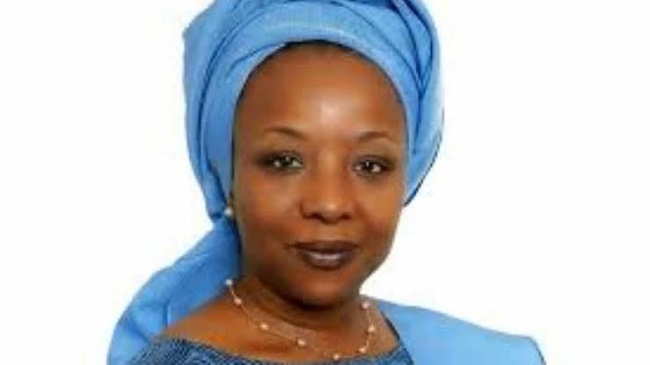As Nigeria joins the rest of the World to mark the 2020 World Earth Day amid the Covid-19 pandemic, the Minister of State for Environment, Sharon Ikeazor, has called for renewed and concerted global action to end the pandemic, and scale up efforts to preserve and restore natural ecosystems, enhance waste management systems and mitigate climate change.

The World Earth Day is celebrated yearly on April 22, and this year’s commemoration marks 50 years of the modern environmental movement started in 1970 that gave a voice to an emerging public consciousness about the state of our planet.
To this end, Sharon Ikeazor noted that “it is a day that stimulates worldwide awareness of climate change and the environment and should therefore enhance stronger government political commitment and massive public action to address all environmental issues, including Covid-19 deadly pandemic.”
According to her, climate change represents the biggest challenge to the future of humanity and the life-support systems that make our world habitable.
The Minister disclosed that, to mark the event in Nigeria, “we will focus on inspiring, sensitising and enlightening Nigerians to take action to mitigate on climate change in line with this year’s Earth Day theme – “Climate Action”, and see the opportunities it presents.
“This year will be the first Digital Earth Day largely due to the COVID-19 pandemic. In the light of this, the Federal Ministry of Environment in collaboration with the British High Commission in Nigeria, will be organising a webinar to present national climate action, discuss the relationship between climate change and health, as well as sustainable recovery from COVID-19. It is the first of its kind and we are taking advantage of technology to reach people in Nigeria and beyond with our message.
“Climate change is a reality that is having disproportionate negative impacts on especially the poor in developing countries mostly felt in our local communities here in Nigeria.”
She expressed optimism that there is, however, a growing recognition that affordable, scalable solutions are available now to enable us all to advance to cleaner, more resilient societies and economies, turning the challenges of climate action into opportunities.
Against the backdrop that COVID-19 has been reported to be a zoonotic disease that passed from animal to human, the Minister believes that Nigeria is on the right track in addressing coronavirus disease as well as other life threatening diseases such as Lassa Fever and the like.
She said the Federal Government has scaled up its commitment to taking action to mitigate, adapt and promote the capacity for resilience to the impacts of climate change in the country through the ratification of the Paris Agreement by Mr. President, strengthening existing institutional framework to ensure effective coordination of climate change activities and other actions.
According to the Minister of State, the Environment Ministry, through the Department of Climate Change, in fulfilment of the Paris Agreement has developed a draft Sectoral Action Plan (SAP) for the implementation of the Nationally Determined Contribution (NDC).
She said: “We are currently reviewing the National Policy on Climate Change for more effectiveness with readiness for Nigeria’s National Adaptation Plan Framework for Climate Change (NAPs – Framework).
“Also, there is a sustained effort to sensitise the citizenry to adopt clean technologies to meet Nigeria’s emission reduction target; even as we have developed the National Forest Reference Emission Factor Level (FREL) and submitted it to the United Nations Framework Convention on Climate Change (UNFCCC).
“We are thinking ahead because we want the environment to be a priority as we recover from COVID-19 to enable us build a healthier and more sustainable future,” she said.
Ikeazor further revealed that the Ministry also developed a Climate Change Resilience Action Plan for the Lake Chad Basin, and then incorporated climate change components into the Disaster Risk Reduction Policy for Nigeria, in conjunction with the National Emergency Management Agency (NEMA), among other actions taken.
